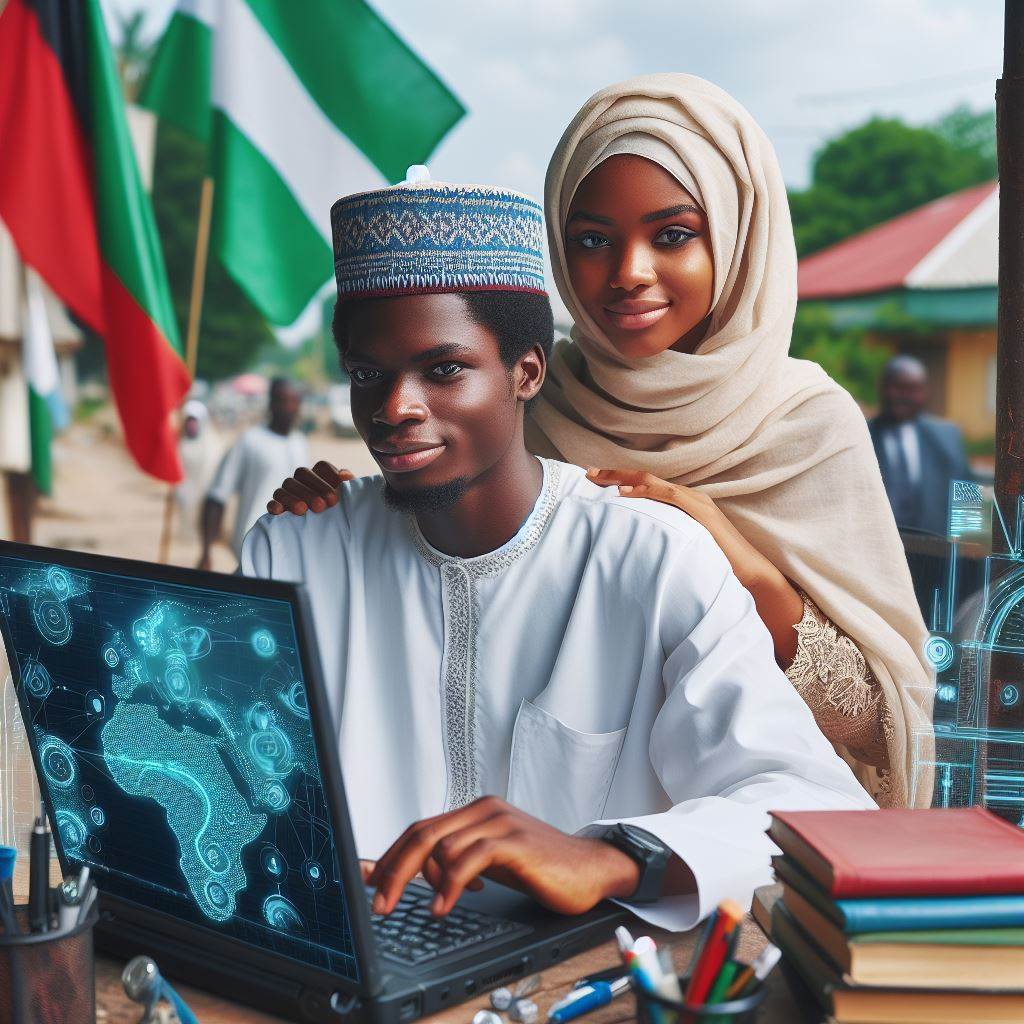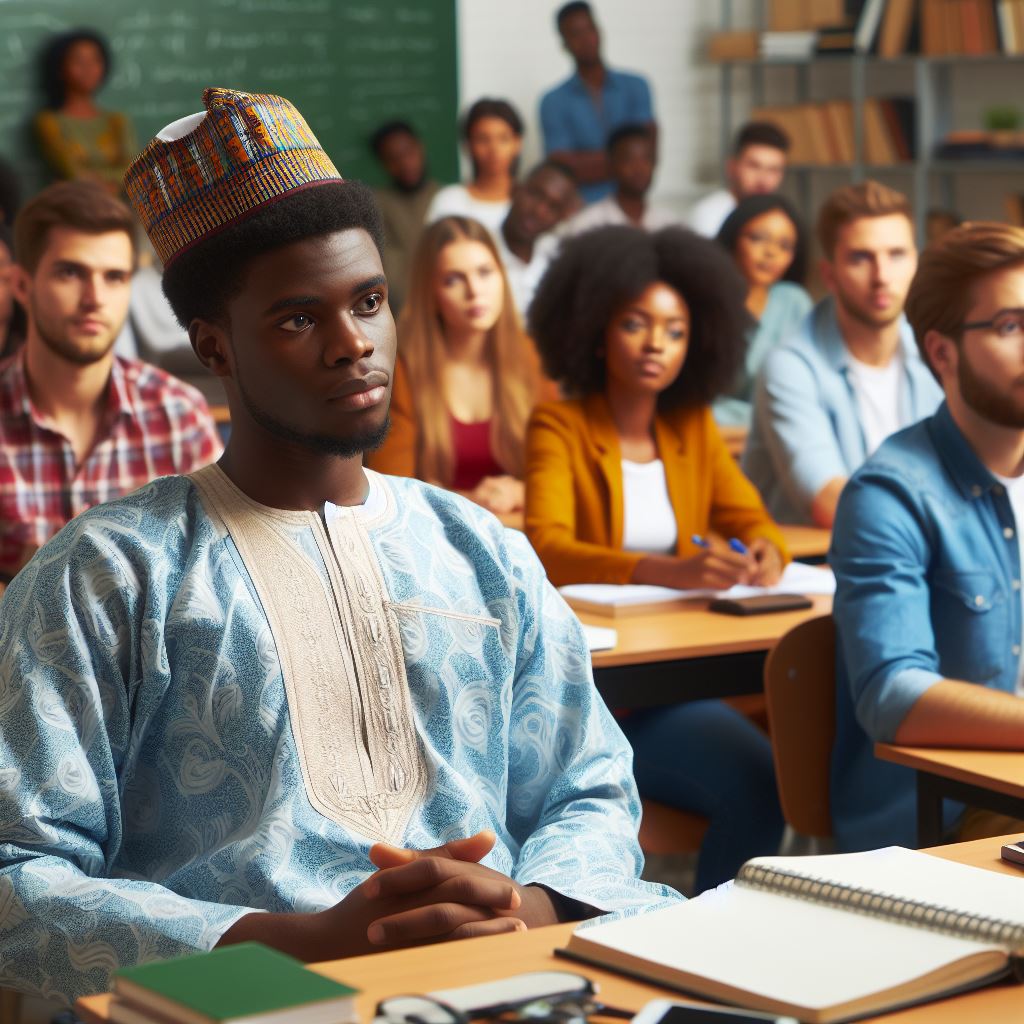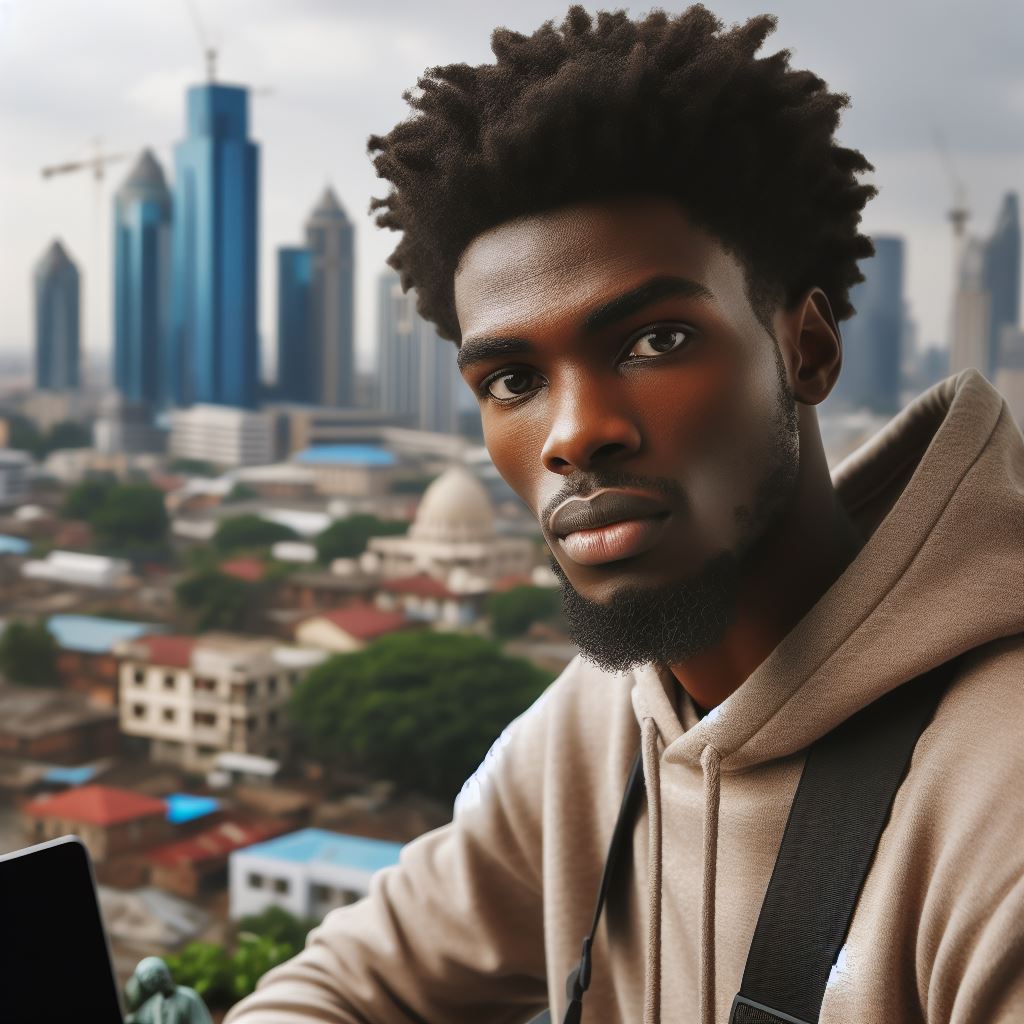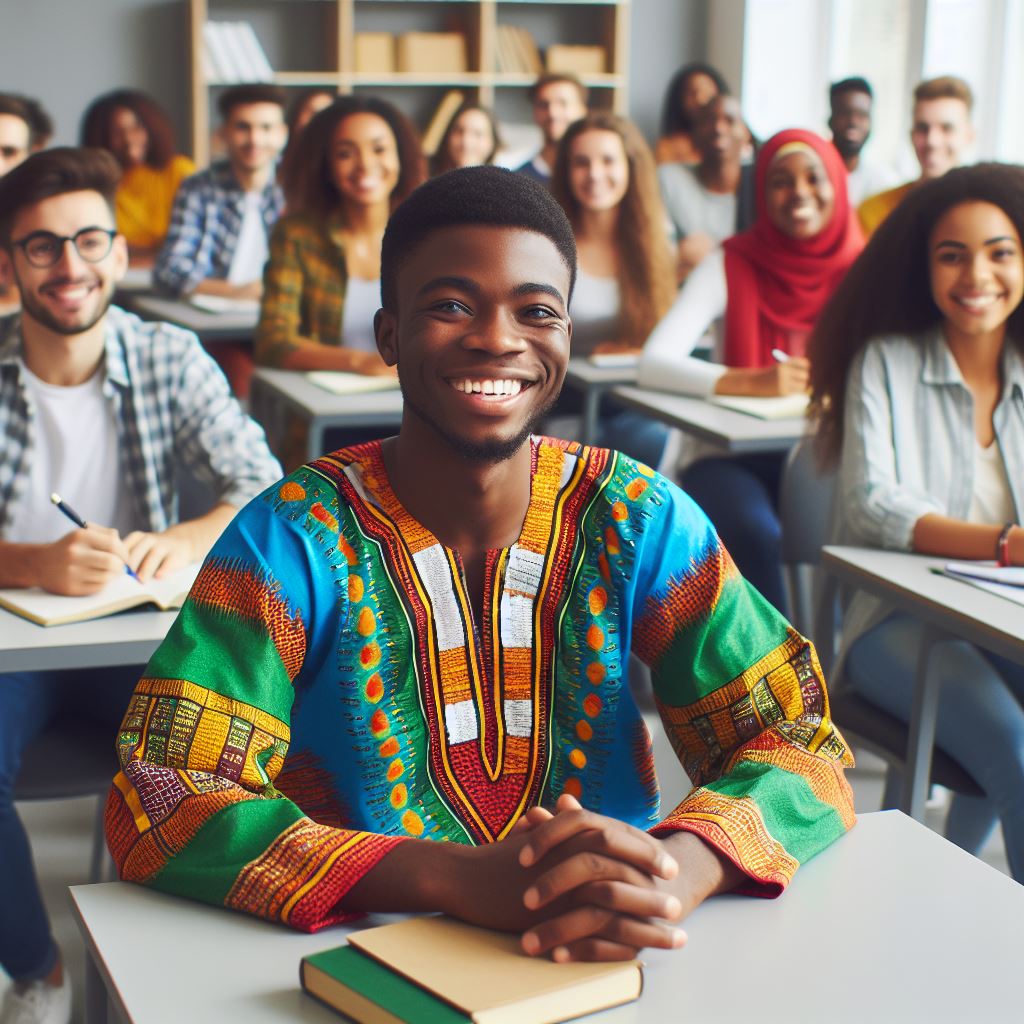Introduction
Digital anthropology explores how digital technologies shape human cultures. It examines interactions within virtual communities and their real-world implications.
Importance of Studying Social Media in Nigerian Culture
Social media profoundly impacts Nigerian culture. It influences communication, social norms, and cultural identity. Understanding this impact is crucial for several reasons:
- Communication: Social media revolutionizes how Nigerians interact and share information.
- Cultural Expression: It provides a platform for showcasing and preserving Nigerian traditions and creativity.
- Economic Opportunities: Social media opens up new business and employment opportunities.
Thesis Statement
This section examines the role of social media in Nigerian culture. It will:
- Analyze communication changes: Investigate how social media alters traditional communication methods.
- Explore cultural expression: Study how Nigerians use social media to express and evolve their cultural identities.
- Assess economic impacts: Evaluate the economic benefits and challenges social media introduces in Nigeria.
Evolution of Social Media in Nigeria
Overview of the history of social media in Nigeria
Social media in Nigeria has evolved significantly over the years, starting with internet forums and chat rooms.
Popular social media platforms in the country
The most popular social media platforms in Nigeria include Facebook, Twitter, Instagram, and WhatsApp.
Impact of social media on communication and interaction among Nigerians
Social media has revolutionized the way Nigerians communicate and interact, breaking down barriers and connecting people across the country.
- Through social media, Nigerians can easily keep in touch with friends and family, even across long distances.
- Social media has also become a powerful tool for activism and social movements in Nigeria, allowing citizens to voice their opinions and organize for change.
- Businesses in Nigeria have also leveraged social media to reach a wider audience, promote their products and services, and engage with customers in real-time.
- Social media has transformed how news is consumed in Nigeria, with many people turning to platforms like Twitter for real-time updates and information.
- Overall, social media has played a crucial role in shaping Nigerian culture, facilitating connections, conversations, and collaborations like never before.
Influence of Social Media on Nigerian Traditional Culture
Social media has significantly impacted traditional values and practices in Nigeria.
- Traditional ceremonies are now shared online, altering the privacy and sacredness of these events.
- Young Nigerians are more exposed to Western ideals, influencing their perception of their own traditions.
- Language use is changing as slang and abbreviations from social media infiltrate everyday conversations.
- Social media platforms promote individualism over collectivism, shifting the dynamics of community interactions.
Examination of how social media has affected traditional values and practices
Social media has blurred the lines between public and private life in Nigeria.
- Family gatherings and rituals that were once intimate affairs are now broadcasted for public consumption.
- The pressure to conform to online trends has led to a dilution of cultural authenticity in some communities.
- Young Nigerians are embracing new forms of self-expression that may conflict with traditional norms.
The spread of Western culture through social media in Nigeria
Social media serves as a gateway for Western culture to infiltrate Nigerian society.
- American pop culture, fashion trends, and ideologies are readily adopted by Nigerian youths through social media platforms.
- Western beauty standards promoted on social media can erode traditional African ideals of beauty.
- The proliferation of Western holidays and celebrations on social media diminishes the importance of indigenous festivals.
Examples of how social media has changed the way Nigerians perceive their culture
Social media has challenged and reshaped traditional Nigerian beliefs and practices.
- Youths are questioning outdated customs and traditions that are perpetuated through social media.
- Cultural norms are being redefined as influencers and celebrities promote new lifestyles on social media.
- The younger generation is adapting to a digital age where validation and recognition come from online engagement.
Read: Scholarships for Communication Arts Students in Nigeria
Role of Social Media in Nigerian Politics
Social media has significantly impacted Nigerian politics in recent years. From influencing political campaigns and elections to facilitating political activism and mobilization, its role cannot be understated.
Analysis of how social media has influenced political campaigns and elections
- Social media platforms allow politicians to reach a wider audience and engage with voters directly.
- Online campaigns have become a crucial part of political strategies, with parties investing heavily in social media advertising.
- Citizens can access real-time updates on candidates’ activities and policy proposals, leading to more informed voting decisions.
- The viral nature of social media can amplify certain narratives and impact the public perception of candidates.
On the use of social media for political activism and mobilization
- Social media has empowered Nigerian citizens to organize and participate in political protests and demonstrations.
- Hashtags and online petitions have enabled activists to raise awareness about social and political issues.
- Platforms like Twitter and Facebook have been instrumental in mobilizing people for mass movements and campaigns.
- Citizens can connect with like-minded individuals and leverage social media to demand accountability from the government.
Impact of social media on the government’s response to citizens’ demands
- The government is now under increased scrutiny as social media users hold officials accountable for their actions.
- Leaks and revelations shared on social platforms have exposed corruption and malpractices within the political system.
- Governments have had to adapt their communication strategies in response to the rapid spread of information on social media.
- Citizens can rally support for causes, putting pressure on policymakers to address their concerns and implement reforms.
Most importantly, social media has fundamentally transformed the political landscape in Nigeria, giving voice to the people and reshaping the dynamics of governance. As the digital age continues to evolve, the role of social media in Nigerian politics will only grow in significance.
Read: Language Learning in African and Asian Studies
Digital Anthropology Research on Social Media in Nigeria
Overview of Studies Conducted on Social Media Use in Nigeria
In recent years, there has been a growing interest in studying the use of social media in Nigerian culture. Several studies have been conducted to understand how social media platforms are shaping social interactions and communication patterns in the country.
Researchers have explored various aspects of social media use, including the prevalence of different platforms, the frequency of use, and the impact of social media on relationships and identity formation.
One study conducted by a team of anthropologists focused on the use of Facebook among young adults in urban areas. The researchers found that Facebook plays a significant role in socializing and maintaining connections among this demographic.
The Methodologies Used in Digital Anthropology Research
Digital anthropology researchers employ a variety of methodologies to study the role of social media in Nigerian culture.
Ethnographic methods, such as participant observation and interviews, are commonly used to gain insights into how individuals interact with social media platforms.
Researchers also analyze online content, such as posts, comments, and images, to understand the types of interactions that take place on social media.
Additionally, surveys and focus groups are used to gather quantitative data on social media use patterns among different demographic groups.
Overall, a combination of qualitative and quantitative methods is typically employed to provide a comprehensive understanding of how social media is integrated into Nigerian everyday life.
Findings of Research on the Role of Social Media in Nigerian Culture
Research findings on the role of social media in Nigerian culture have revealed several key insights. Firstly, social media platforms are widely used for socializing, networking, and sharing information among Nigerians.
Secondly, social media has become a crucial tool for political engagement and activism in Nigeria. Activists and advocacy groups utilize social media to mobilize support, raise awareness about social issues, and coordinate protests and campaigns.
Additionally, social media plays a significant role in shaping cultural identities and expressions. Nigerians use social media platforms to showcase their cultural heritage, promote traditional practices, and engage in discussions about cultural norms and values.
Essentially, research on the role of social media in Nigerian culture highlights the multifaceted ways in which social media platforms are influencing social interactions, communication patterns, and cultural practices in the country.
Read: Career Paths in Communication and Language Arts

Social Media Influencers and Trends in Nigeria
In recent years, social media influencers have become a prominent feature in Nigerian culture, shaping trends and influencing behavior among the population.
This section will delve into the rise of social media influencers in Nigeria, popular social media trends among Nigerians, and the overall impact of influencers on shaping Nigerian culture.
Rise of Social Media Influencers in Nigeria
Social media influencers have gained significant traction in Nigeria due to the widespread use of platforms such as Instagram, Twitter, and YouTube. These influencers leverage their online presence to build a loyal following and promote brands or products.
With the rise of digital marketing, companies are increasingly turning to influencers to reach their target audience in a more organic and authentic way. Nigerian influencers often collaborate with brands in various industries, including fashion, beauty, technology, and travel.
Some of the most popular Nigerian influencers have amassed millions of followers, making them influential voices in the digital space. They often engage with their audience through engaging content, including photos, videos, and live streams.
Popular Social Media Trends Among Nigerians
While social media trends are constantly evolving, there are some recurring themes that resonate with Nigerians across different platforms. These trends often reflect the country’s diverse culture, interests, and values.
- Challenges and viral sensations: Nigerians actively participate in online challenges and viral trends, from dance challenges to comedy skits. These trends unite people from different backgrounds and spark creativity.
- Political activism and social commentary: Social media has become a powerful tool for Nigerians to voice their opinions on political and social issues. Influencers often use their platforms to raise awareness and advocate for change.
- Celebrity culture and entertainment: Nigerians have a strong affinity for celebrities and entertainment, and social media serves as a hub for fan interactions, gossip, and news updates. Influencers in the entertainment industry play a significant role in shaping trends.
- Entrepreneurship and self-promotion: Many Nigerians use social media to showcase their talents, businesses, and personal brand. Influencers who have successfully monetized their online presence inspire others to pursue entrepreneurship and creativity.
Impact of Social Media Influencers on Shaping Nigerian Culture and Trends
Social media influencers play a crucial role in shaping Nigerian culture and trends by influencing consumer behavior, setting fashion trends, and driving conversations on relevant topics. Their impact extends beyond the digital realm and into real-life experiences.
By collaborating with influencers, brands can tap into their followers’ trust and loyalty, reaching a wider audience and building brand recognition. Influencers are often seen as relatable and authentic, making their endorsements more persuasive to consumers.
Moreover, influencers have the power to start conversations, raise awareness about important issues, and create social change. Their ability to connect with a diverse audience gives them a platform to advocate for causes and bring about positive impact in society.
To sum it up, social media influencers have become integral to Nigerian culture, influencing trends, consumer behavior, and societal discourse. As social media continues to evolve, influencers will play an even more significant role in shaping the digital landscape of Nigeria.
Read: Comparing Communication Arts and Mass Communication
You Might Also Like: Ethnographic Research in African and Asian Studies
Challenges and Ethical Considerations in Studying Social Media in Nigerian Culture
When conducting research on social media in Nigerian culture, researchers often face several challenges that can impact the quality and accuracy of their studies. These challenges can range from technical issues to cultural barriers that make it difficult to gather reliable data.
The challenges researchers face in studying social media in Nigeria
- Access to reliable internet connection: In Nigeria, internet connectivity can be unreliable, making it challenging to access social mediaplatforms consistently.
- Language barriers: With over 500 languages spoken in Nigeria, researchers may encounter difficulties in understanding and interpreting digital content.
- Data privacy concerns: Nigerian users may be reluctant to share personal information online due to privacy concerns, affecting the availability of data.
Ethical considerations when conducting digital anthropology research on social media
- Cultural sensitivity: Researchers must respect Nigerian cultural norms and values when studying social media interactions to avoid misinterpretation.
- Informed consent: Obtaining consent from social media users in Nigeria is crucial to ensure ethical research practices and protect user privacy.
- Data protection: Researchers must safeguard the information collected from social media platforms to prevent misuse and protect user confidentiality.
Solutions to overcome challenges and ensure ethical research practices
- Collaboration with local experts: Working with Nigerian researchers or anthropologists can provide valuable insights into the local culture and help navigate challenges effectively.
- Use of translation tools: Leveraging technology to translate content in different languages can help researchers overcome language barriers and ensure accurate interpretation.
- Ethical guidelines: Following established ethical guidelines and obtaining approval from relevant authorities can help researchers conduct digital anthropology research ethically and responsibly.
In review, studying social media in Nigerian culture presents unique challenges and ethical considerations that researchers must address to ensure the integrity and validity of their findings.
By acknowledging these issues and implementing solutions, researchers can conduct meaningful and respectful research that contributes to a deeper understanding of Nigerian digital culture.
Delve into the Subject: The Future of Nigerian Fashion Design Industry
You Might Also Like: English Language Programs: Admission Requirements
Transform Your Career with Expert Guidance
Get personalized mentorship consulting that’s tailored to your unique path. Our expert advice is actionable and exclusive.
Get StartedConclusion
All in all, the blog post has shed light on the significance of social media in Nigerian culture. It highlighted how platforms like Facebook, Twitter, and Instagram play a vital role in shaping communication and interaction among Nigerians.
Digital anthropology offers a unique lens through which researchers can better understand the nuances of social media use in Nigerian society.
By examining the ways in which Nigerians engage with social media, we can gain valuable insights into their cultural practices, values, and beliefs.
It is essential to recognize the importance of digital anthropology in studying social media in Nigerian culture. This field provides a framework for exploring the impact of technology on societal norms, communication patterns, and identity formation.
As we reflect on the role of social media in Nigerian culture, it becomes clear that further research and exploration in digital anthropology are necessary.
By delving deeper into how Nigerians navigate online spaces, we can uncover a wealth of information about their behaviors, attitudes, and interactions.
Therefore, there is a pressing need for scholars, researchers, and practitioners to continue investigating the intersection of social media and Nigerian culture through the lens of digital anthropology.
This call to action invites individuals to contribute to the growing body of knowledge in this field and explore the complexities of social media use in Nigeria further.




